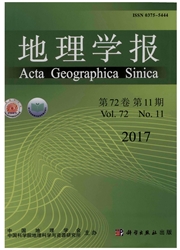

 中文摘要:
中文摘要:
从城市化内涵的人口、经济、社会、土地四个方面,构建中国城市化水平的综合评价指标体系。基于熵值法,对1981—2006年的中国城市化进行综合测度,结果表明中国城市化综合水平持续提高,以经济增长和地域景观的快速演进为主要特征,其次是人口城市化,最后是社会城市化中的医疗水平,其中各子系统有不同的演变特点。多元回归模型分析表明,城市化动力因子呈现多元化特征,市场力是最主要的驱动力,后面依次是内源力、行政力和外向力。从城市化发展阶段上看,市场力、外向力和行政力对城市化综合水平的影响呈上升趋势,而内源力呈明显下降趋势。本文认为,中国城市化主要是内生过程,应强化市场经济体制改革,统筹城乡发展。
 英文摘要:
英文摘要:
From the essential meaning of urbanization, this paper establishes a comprehensive evaluation index system, including four aspects changing: population, economy, society and land. Based on the method of entropy, the measure and evolution of China's urbanization are analyzed since 1981. The results show that China's comprehensive urbanization level continues improving. Economic growth and geographical landscape are the main features of rapid evolution of urbanization, followed by the population urbanization, and the medical care level of social urbanization is the least advanced. The evolution of all the four subsystems has unique characteristics. The analysis of multiple regression model shows that the driving factors have been diversified. The market force is the most powerful driving force of China's urbanization, followed by intrinsic force, administration force, exterior force. From different stages of urbanization, the effects of market force, exterior force and the administration force on urbanization are increasing, while intrinsic force is decreasing. China's urbanization is the main endogenous process, hence more policies should be formulated to strengthen the market economy reform and coordinate urban and rural development.
 同期刊论文项目
同期刊论文项目
 同项目期刊论文
同项目期刊论文
 期刊信息
期刊信息
